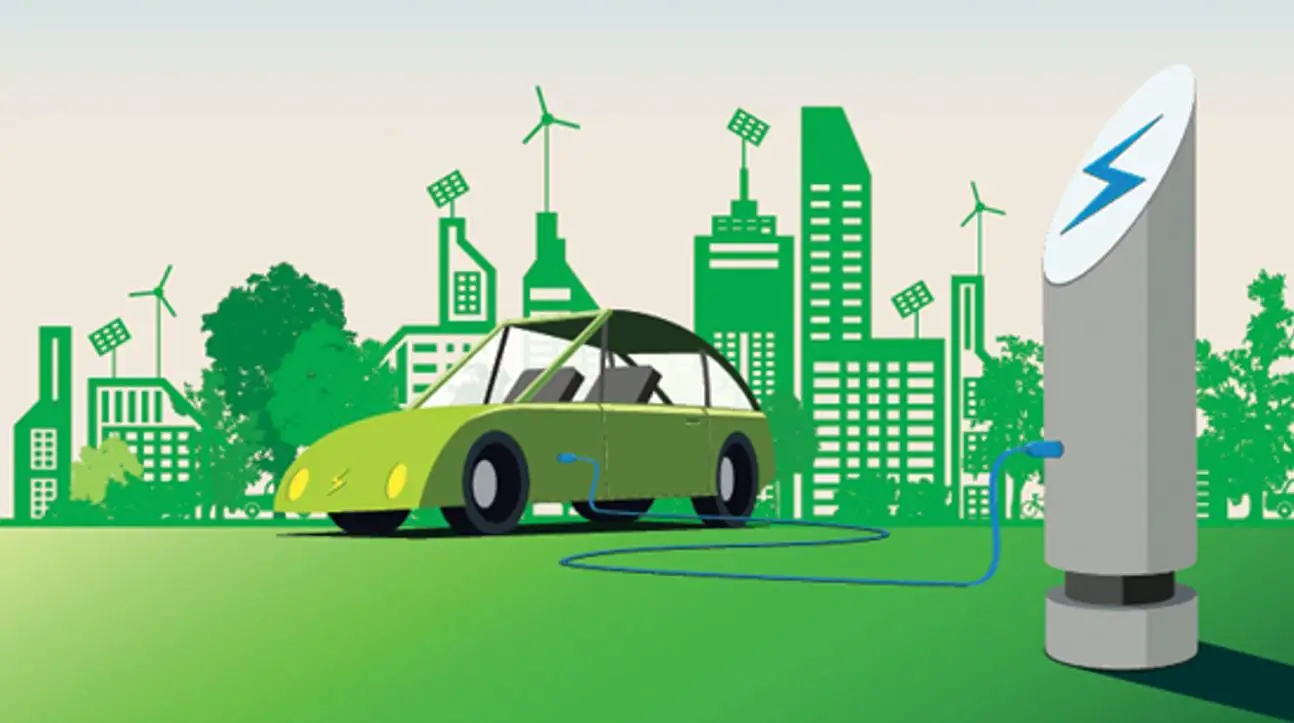Best Ways to Prepare Young Professionals for Electric Mobility.
The rapid growth of electric mobility (e-mobility) is revolutionizing the global transportation sector. This is driven by the need to reduce carbon emissions, improve air quality, and create sustainable energy solutions.


The rapid growth of electric mobility (e-mobility) is revolutionizing the global transportation sector.
This is driven by the need to reduce carbon emissions, improve air quality, and create sustainable energy solutions.
As governments, organizations, and industries increasingly adopt electric vehicles (EVs), the demand for professionals skilled in electric mobility has surged.
Preparing young professionals for this evolving sector requires a multifaceted approach integrating technical expertise, environmental awareness, and innovation.
Here’s a comprehensive guide on the best ways to prepare young professionals for the electric mobility industry.
1. Strengthening Technical Education and Vocational Training
Electric mobility is a highly technical field that requires specialized skills.
A robust foundation in electrical engineering, battery technology, and sustainable energy systems is crucial.
Young professionals should be equipped with the following skills:
- Battery Technology: Understanding the science behind lithium-ion batteries, energy storage, and battery management systems is vital. Training programs should emphasize the role of advanced battery technologies in EV performance, longevity, and efficiency.
- Power Electronics: Mastery of power conversion, electric motors, and drive systems is essential for designing and maintaining EVs. Courses on inverters, converters, and motor control systems will help young professionals understand the core components of electric mobility.
- Software and Data Analytics: Electric mobility is powered by smart technology. Proficiency in software programming, data analytics, and simulation tools enables professionals to work on EV design, autonomous systems, and energy optimization.
Vocational training institutions and universities should collaborate with the electric mobility industry to ensure that their curricula are up-to-date with the latest technological advancements.
Offering apprenticeships and hands-on training opportunities in EV manufacturing and maintenance will provide real-world experience and enhance employability.

2. Promoting Sustainability and Environmental Awareness
A key driver behind the shift to electric mobility is the need to combat climate change and reduce reliance on fossil fuels.
Therefore, young professionals in the e-mobility sector should be well-versed in the environmental and social impacts of electric transportation.
This includes:
- Life Cycle Analysis (LCA): Understanding the environmental footprint of electric vehicles, from raw material extraction to disposal, is important for developing sustainable solutions. Training programs should focus on the importance of recycling EV batteries and minimizing energy consumption.
- Renewable Energy Integration: The future of electric mobility is intertwined with the broader adoption of renewable energy sources, such as solar and wind power. Professionals should learn how EVs can be integrated into smart grids, helping to balance energy loads and reduce carbon emissions.
- Policy and Regulation: Knowledge of government policies, incentives, and regulatory frameworks governing electric mobility is vital for navigating the industry. Professionals should be aware of international agreements, such as the Paris Agreement, and local environmental policies that influence e-mobility adoption.

Read: The Impact of Electric Cars on Climate Change.
3. Fostering Innovation and Entrepreneurship
The electric mobility industry is rapidly evolving, and innovation is crucial for driving new developments.
Young professionals should be encouraged to think creatively and explore entrepreneurial opportunities in the sector.
Ways to foster innovation include:
- Incubation Programs: Setting up e-mobility incubation centers or hubs where young innovators can access mentorship, resources, and funding to develop their ideas into marketable solutions.
- Hackathons and Competitions: Organizing electric mobility hackathons, where young professionals can collaborate to solve real-world challenges, is a great way to stimulate creative thinking and foster problem-solving skills.
- Collaborative Projects: Cross-disciplinary collaboration between engineering, business, and design students can help develop new e-mobility technologies. Students should be encouraged to work on projects that address the practical challenges faced by the industry, such as charging infrastructure, vehicle range, and cost-effectiveness.
4. Building Industry Partnerships and Internships
Partnerships between academic institutions, governments, and private companies are critical to preparing young professionals for electric mobility.
These partnerships can lead to:
- Internship Programs: Offering students the opportunity to work in leading EV companies allows them to gain practical experience and understand the challenges and opportunities within the industry. Internships with companies specializing in battery manufacturing, electric vehicle design, and charging infrastructure will be highly beneficial.
- Industry-Led Certifications: Developing certification programs in collaboration with industry leaders ensures that young professionals are equipped with the specific skills required by employers. Certifications can focus on areas such as EV maintenance, battery technology, and EV software systems.
- Mentorship Programs: Mentorship from experienced professionals within the electric mobility industry can guide young professionals through career development and offer valuable industry insights.
Related: How Do Electric Vehicles Combat Climate Change?

5. Addressing Infrastructure and Technological Challenges
The transition to electric mobility presents significant infrastructure challenges, including the development of widespread charging networks, grid integration, and maintenance services.
Young professionals should be trained to address these challenges by focusing on:
- Charging Infrastructure: A deep understanding of charging technologies, such as fast chargers, wireless charging, and smart charging systems, is crucial for expanding e-mobility infrastructure. Professionals should also learn about public-private partnerships to fund and build charging stations.
- Grid Management: As electric vehicles become more widespread, their impact on power grids will increase. Young professionals should be familiar with smart grid technology and strategies to prevent overloading, such as Vehicle-to-Grid (V2G) systems, which allow EVs to supply power back to the grid during peak demand.
- Maintenance and Repair Services: Electric vehicles require specialized maintenance. Training programs should include courses on diagnosing and repairing EVs, focusing on high-voltage systems, software diagnostics, and battery maintenance.
6. Developing Soft Skills and Leadership Abilities
Beyond technical knowledge, young professionals in the electric mobility sector will need strong soft skills to navigate a dynamic and interdisciplinary industry.
Key areas of focus should include:
- Leadership and Management: Training young professionals to lead teams, manage projects, and communicate effectively across departments will be vital as they progress in their careers.
- Collaboration and Teamwork: Electric mobility projects often require close collaboration between engineers, software developers, environmental scientists, and policymakers. Professionals should be trained to work effectively in diverse teams.
- Adaptability and Continuous Learning: The electric mobility industry is fast-paced, with frequent technological advancements. Young professionals should be equipped with a mindset of continuous learning to stay ahead of new developments and industry trends.
See: Electric vehicles can help reverse Climate Change.
7. Global Exposure and Networking Opportunities
Electric mobility is a global industry, and professionals need to stay informed about developments and opportunities worldwide.
Encouraging international exposure through exchange programs, global conferences, and industry events can broaden their understanding of the market.
- International Collaboration: Collaborating with professionals and companies from different parts of the world exposes young talent to diverse approaches and innovative solutions in e-mobility. Programs that facilitate knowledge sharing across countries can lead to groundbreaking developments in electric transportation.
- Networking Events: Participation in industry events and conferences helps young professionals establish connections with key players in the electric mobility sector, fostering relationships that may lead to future collaborations, investments, or job opportunities.

To conclude, preparing young professionals for the electric mobility industry requires a well-rounded approach that blends technical skills, environmental awareness, innovation, and soft skills.
By integrating these elements into educational curricula, vocational training, and industry partnerships, we can ensure that the next generation of professionals is ready to lead the charge in the sustainable transportation revolution.
With proper training and exposure, young professionals can contribute significantly to the future of electric mobility, helping to create a cleaner, more efficient, and sustainable world.




